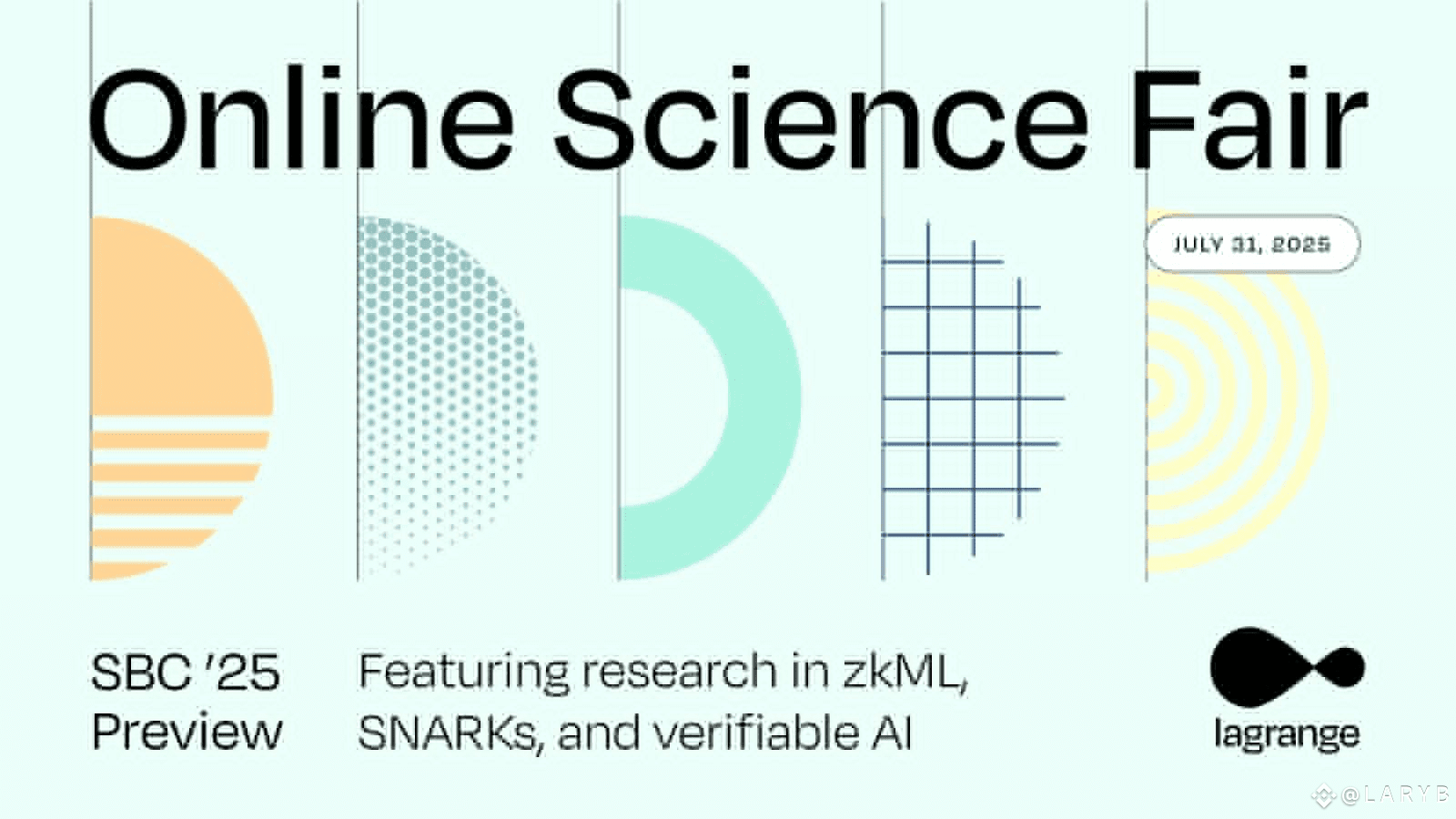Introduction
• Lagrange provides a next-generation ZK infrastructure layer, offering scalable off-chain computation and cross-chain state proofs powered by zero-knowledge cryptography.
• Built on EigenLayer restaking and modular ZK components, it enables dApps to perform heavy computations with verifiable results, without trusting off-chain providers.
• Lagrange includes two foundational products—its ZK Coprocessor and State Committees—that are redefining interoperability and computational trust in Web3.
Overview
• Lagrange delivers two core AVS offerings: a hyper-parallel ZK Coprocessor for verifiable heavy computation, and State Committees, a scalable ZK light-client layer for optimistic rollups.
• These components combine to form a modular ZK Big Data Stack, enabling trustless computation and real-time cross-chain state proofs.
• They collectively eliminate trust assumptions, reduce development overhead, and open new possibilities for data-intensive Web3 applications.
• Rather than wrestling with gas-limitations or trusting external oracles, developers can now offload complex workflows - like SQL queries or multi-chain state aggregation - to a verifiable off-chain processor.
• And instead of waiting out bridge challenge windows, Lagrange lets bridges access optimistic rollup state instantly using cryptographic attestations from robust committees.
• It introduces a new paradigm: computation and consensus that is fast, auditable, and scalable, unlocking richer applications on Web3.
• The ZK Coprocessor divides large off-chain workloads across multiple provers, generating proofs using SNARK-wrapped STARKs - enabling efficient verification of SQL, MapReduce, AI, or other batch tasks.
• State Committees are Ethereum-backed AVSs built through restaked ETH, producing scalable state proofs for rollups like Optimism, Base, Mantle, and Arbitrum, without the limited sizes of traditional validators.

• Services like Renzo, Swell, and Puffer are integrating Lagrange to transform reward mechanics and repricing logic into verifiable, trustless on-chain computations.
• Mantle committed $10M in $MNT to Lagrange’s State Committees to secure fast-finality cross-chain messaging with economic guarantees.
• Over $4B in restaked assets backed Lagrange AVS within two weeks of launch, with an additional $1.5B more committed through partners like Renzo and Swell.
• The ZK Prover Network - composed of 85+ independent operators - supports proof generation for everything from AI inference (DeepProve) to STL Coprocessing workloads.
• Lagrange’s architecture supports super-linear economic security: State Committees scale in security strength with the number of restaked operators, unlike capped validator models.
• Lagrange State Committees integrate with interoperability proto-cols such as LayerZero, Axelar, and Polymer to enhance cross-chain trust infrastructure.
Core offerings
• ZK Coprocessor: verifiable off-chain computation via horizontally scalable provers.
• State Committees: ZK light-client security for rollups delivering instant state proofs.
• ZK Prover Network: decentralized, high-liveness proving layer for multiple applications.
• Developer tooling: modular APIs and SDKs for seamless integration into Web3 stacks.

Technical edge
• Hyper-parallel architecture allows thousands of operators to process proofs simultaneously.
• State Committees enable dynamic, unbounded validator sets for cross-chain security - no spoilable subsets.
• Deploys to modular ecosystems like EigenLayer, Celestia, Base, Mantle, Optimism, and Arbitrum.
• Supports advanced use cases including AI inference (DeepProve), cross-chain messaging, and DeFi logic verification at scale.
Innovations and ecosystem momentum
• $13.2M in seed funding led by Founders Fund, with participation from top Web3 VCs.
• $17.2M Pre-Seed tranche announced June 2025 for hardware, R&D, and scaling ZK copro-cessing infrastructure.
• Live testnet “Euclid” demonstrating real coprocessor functionality.
• Rapid integrations with ecosystems like Arbitrum, Mantle, Frax, Omni, and more.
• Developer and institutional interest building with early adopters leveraging Lagrange’s primitives for advanced Web3 apps.
Market growth
• Lagrange taps into the massive demand for scalable computation and cross-chain messaging in Web3 - especially for AI, DeFi, and interoperability tools.
• Backing from EigenLayer and actors like Mantle shows confidence in the need for ZK-based shared security infrastructure.
• Lagrange’s modular design and open-source vision make it a foundational building block for the growing modular stack.
• With super-linear security and fast-finality features, it promises new verticals like loyalty reward verifications, decentralized identity, and cross-chain financial instruments.
Security
• Security foundations rest on restaked ETH via EigenLayer - creating economically robust validation for both coprocessing and state attestations.
• State Committees offer proofs secured by a dynamic, unbounded set of participants, resisting small-scale attacks.
• ZK proofs ensure immutability and correctness for computation, with slashing and gating mechanisms for misbehavior.
• Gateway-Prover architecture includes liveness penalties - operators failing to deliver lose payment or stakes, enhancing reliability.
Conclusion
• Lagrange brings a new era of trustless, large-scale computation and interoperability to Web3 - without sacrificing security or decentralization.
• Its ZK Coprocessor and State Committees enable powerful, verifiable off-chain logic and instant cross-chain state access.
• Backed by strong funding, partner integrations, and cutting-edge cryptography, Lagrange is poised to become the verifiable infrastructure layer in modular blockchain architectures.
• It turns ZK from an advanced concept into a practical utility - empowering Web3 developers to build faster, smarter, and more securely.
#lagrange @Lagrange Official $LA
